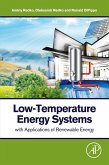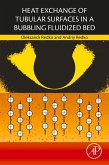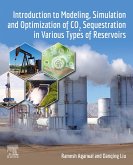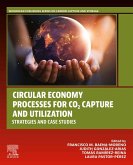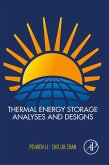Exergy Analysis of Heating and Cooling presents a comprehensive understanding of the fundamental theory and design of various complex heating and cooling systems. The book develops a methodology for the reader to analyze the performance of thermodynamic heating and cooling systems, including known and emerging technologies of the future. The formulation of system and subsystem boundaries are discussed to ensure readers can evaluate the whole chain of processes, from primary exergies to useful exergy services. Numerous examples that illustrate how to identify causes for, and solutions to, exergy efficiency are included to increase clarity and understanding for readers. The book's authors evaluate advanced thermodynamic systems by precisely identifying the design and operating parameters which may cause inefficiencies. Users will find this resource to be a great guide that helps solve common problems and mathematical equations for those working and researching in heating and cooling, thermodynamics, and thermal energy engineering systems. - Presents a methodology to analyze the performance of integrated energy systems, including known and emerging technologies - Answers conceptual questions and calculations related to the concepts of exergy and efficiency of various heating and cooling systems - Equips readers with the knowledge they need to evaluate the whole chain of processes, from primary exergies to useful exergy services
Dieser Download kann aus rechtlichen Gründen nur mit Rechnungsadresse in A, B, BG, CY, CZ, D, DK, EW, E, FIN, F, GR, HR, H, IRL, I, LT, L, LR, M, NL, PL, P, R, S, SLO, SK ausgeliefert werden.



